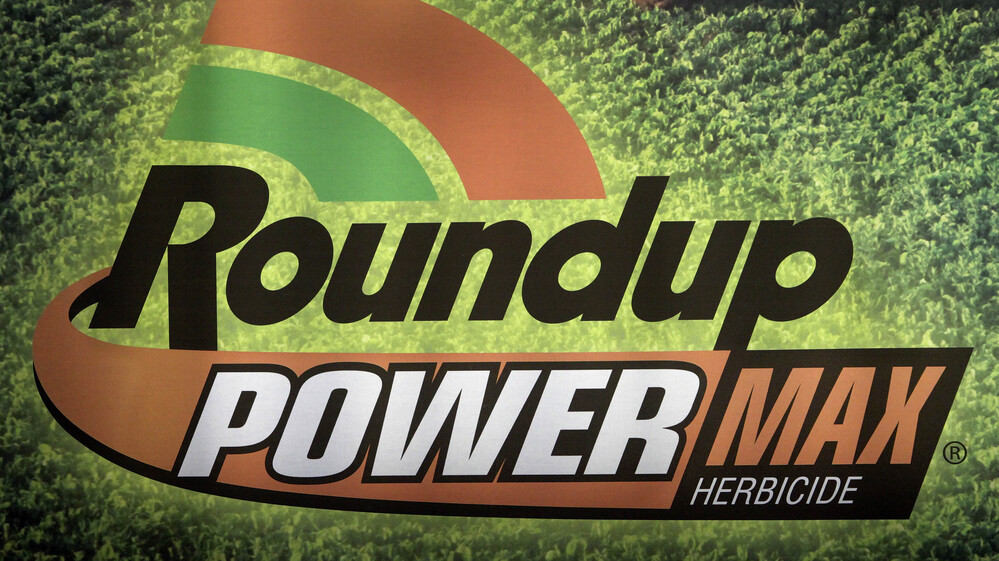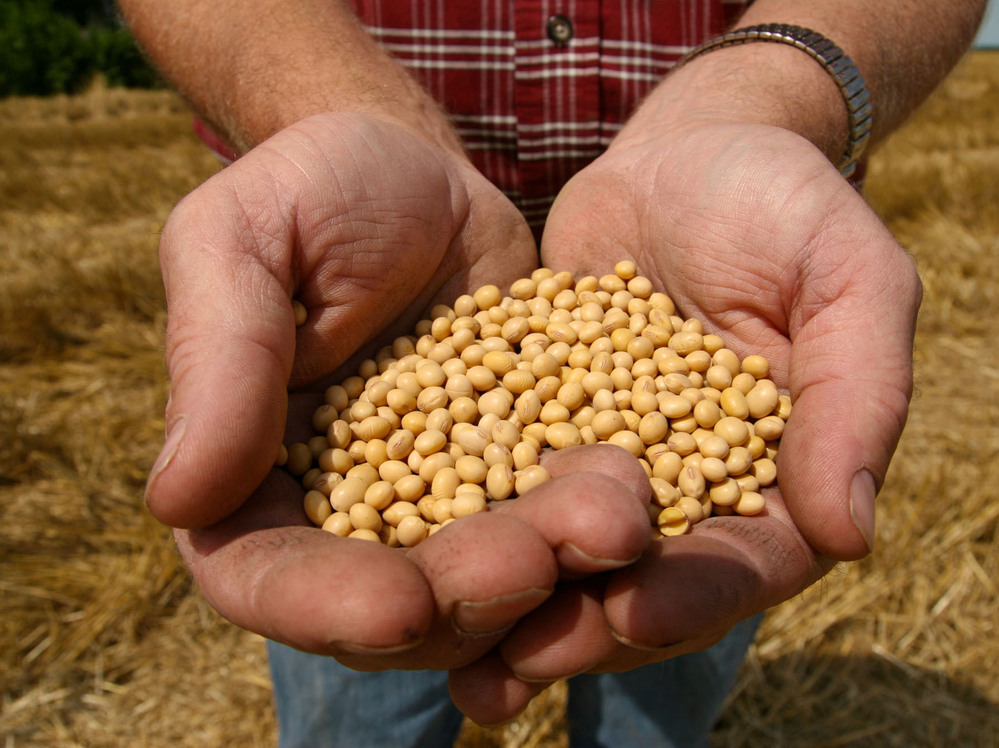 Enlarge image i
Enlarge image i To spray or not to spray? That may be the question on which Monsanto's arguments against farmers hangs.

To spray or not to spray? That may be the question on which Monsanto's arguments against farmers hangs.
For years, the biotech giant Monsanto has provoked outrage among its critics for suing farmers who save and replant seeds from the company's patented Roundup Ready crops, such as soybeans and canola.
Some of that outrage is based on a decade-old case in Canada, in which a court ruled that a farmer, Percy Schmeiser, violated Monsanto's patents by planting canola that he "knew or ought to have known" contained Monsanto's Roundup Ready gene. Schmeiser argued that he didn't want the gene in his fields, and that it had become incorporated into his canola via wind-blown pollen.
Monsanto won that case, but the company might have been better off losing because the victory has been a public relations disaster. Around the world, many people now believe, mistakenly, that Monsanto is suing farmers for growing patented seeds that wandered into their fields without the farmers' knowledge and against their will.
So it caught our attention last week when a lawyer representing Monsanto in federal court seemed to admit that suing Schmeiser had been a mistake that the company would not repeat.
The lawyer for Monsanto, Seth Waxman, was being questioned by Judge William Bryson, from the U.S. Appeals Court for the Federal Circuit. In the case, a group of mostly organic farmers had hauled Monsanto into court, claiming that they are being damaged by the possibility that Monsanto might sue them. Bryson wanted to know what actions would convince Monsanto to sue a farmer, and Waxman came up with this:
"In the real world, Judge Bryson, the cases Monsanto brings are cases in which it has come to learn that the farmer is not purchasing any Roundup Ready seed, but is spraying his fields with Roundup, and the plants are surviving. If the farmer were not spraying, by definition he wouldn't be taking advantage of Monsanto's technology."
 Enlarge image i
Enlarge image i A farmer holding Monsanto's Roundup Ready soybean seeds at his family farm in Bunceton, Mo.

A farmer holding Monsanto's Roundup Ready soybean seeds at his family farm in Bunceton, Mo.
Under Waxman's common-sense standard, Monsanto wouldn't have brought its case against Schmeiser. That's because in that case, the company did not produce any evidence that Schmeiser was taking advantage of Monsanto's technology by spraying his crop with Roundup.
We called several lawyers to see whether Waxman's statement in court had any legal standing and would prevent any Schmeiser-style lawsuits in the future. They tell us that Monsanto isn't bound by Waxman's words, because he's just a hired lawyer thinking on his feet in a courtroom, not a company executive.
The judges in this case, however, might conceivably take up this point in their eventual decision. If they follow Waxman's lead and write, for instance, that farmers don't infringe Monsanto's patents unless they are "taking advantage" of those genes and getting some benefit from them, it would be more significant. But Daniel Ravicher, who argued the case against Monsanto for the group of organic farmers, says even such an opinion wouldn't completely change the legal landscape, because other judges, in other courts, still could disagree.
Meanwhile, the battle continues. The U.S. Supreme Court is about to take up another high-profile Monsanto seed case involving patent infringement. Oral arguments are scheduled for February 19.
Leslie Hatfield: WATCH: Organic Farmers Sue Monsanto, Hundreds ... Happy New Year! 13 Quotes To Inspire A ... Monsanto employs a fleet of lawyers and took 144 farmers to court ... they should not be allowed to sue farmers caught in ... Monsanto vs. U.S. Farmers - The Center for Food Safety ... research and numerous interviews with farmers and lawyers, CFS found that Monsanto, ... Monsanto vs. U.S. Farmers chapter New ... does not bar Monsanto from suing ... Family Farmers Take on MonsantoWill They Get Justice ... ... New Mexico, Colorado, ... the farmers are pre-emptively suing Monsanto and seeking court ... IT COULD REQUIRE HIGHER STANDARDS OF PROOF FOR MONSANTO TO ... Monsanto Wins Patent Dispute Against Farmer Who Bought Legal Seeds ... ... once Monsanto has given farmers the rights to sell second ... because the seeds Bowman planted are new ... Monsanto needs to sue its own plants ... 300,000 Organic Farmers Sue Monsanto in Federal Court: Decision on ... 300,000 Organic Farmers Sue Monsanto in ... Willie Nelson just released a new poem on ... Their lawyers argued that the public's right to know can't stand up ... 300,000 organic farmers sue Monsanto American Vision News 300,000 organic farmers sue Monsanto. ... lead lawyer for the Plaintiffs said, ... The Weekly Standard reports ... Monsanto Lawyer Suggests New Standard For Suing Farmers ... This page provides information about 'Monsanto Lawyer Suggests New Standard For Suing Farmers' on Broken Controllers. Monsanto Lawyer Suggests New Standard For Suing Farmers : The Salt ... For years, the biotech giant Monsanto has provoked outrage among its critics for suing farmers who save and replant seeds from the company's patented Roundup Ready ... 300,000 Organic Farmers Sue Monsanto in Federal Court Willie Nelson just released a new poem on ... to demonstrate to their appalling lawyers and lobbyists that ... Farmers suing Monsanto sounds good but they do ... Monsanto Lawyer Suggests New Standard For Suing Farmers Many farmers are worried that the biotech giant will sue them if a patented gene gets accidentally incorporated into their crops. But in a departure, one Monsanto ...
No comments:
Post a Comment